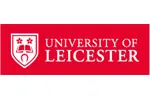About PhD in Management, PhD - at University of Leicester, School of Management
Applicants with an ESRC-accredited Master's degree (or equivalent) with distinction may be admitted directly to the PhD programme. This ordinarily entails three years of full time or five years of part time registration. Two supervisors will be assigned to each student upon registration.
Research AreasMembers of the School of Management conduct research in the following broad areas:
1. Alternative OrganisingA major research focus in the School is the exploration of alternative forms of organization and management. This work, designed to develop and promote different ways of theorising organization and organizational processes, as well exploring other non-managerial organizational forms and ways of doing business.
2. Philosophy, Politics and EthicsAn interest in the philosophical roots of organization theory informs much of the research conducted across the School. This covers both forms of post-structuralist social and cultural theory, as well as a concern with ethical and political theories as they are deployed in Business Ethics and Corporate Social Responsibility.
3. Business History and Institutional AnalysisThis cluster combines an interest in the historical development of private and public sector organisation and management practice with a concern to analyse the organisational consequences and limitations of particular institutional arrangements.
4. FinanceThe department does research in areas on deregulation, privatisation and performance measurement (deterministic and stochastic measurement of efficiency and productivity). Other areas which are also actively researched are:
value theory; globalisation; derivative pricing; application of physics concepts in social science; public sector management; public finance; narratives of trading; regulation and conduct of financial and commodity derivatives trading; impact of insider trading on market microstructure; interplay between stock markets and political developments; internet banking.
5. Consumption, Identity and DiversityThe increased concern with managing culture in and around organization is the analytic focus for this cluster of research. More specifically, the work explores the significance of consumption on the construction of identity and socio-economic experience in contemporary society.
6. Methodology and Textual AnalysisThere is a wide interest in the technologies of knowledge across the School. Some is explicitly about methods and methodology, some more generally concerned with the impact and significance of discursive practices for knowledge creation. It centres on an acknowledgement of the _linguistic turn_ in organizational analysis and there is a widely shared interest in discourse and the problems this poses for representation in organising and, more specifically, for the conduct of the research process.
7. Work, Employment and the Knowledge Economyhttp://www.clms.le.ac.uk/research/research.lasso
The socio-economic and political significance of work, and the regulation of employment relations remains a fundamental aspect of management. Themes which inform work in this cluster are the consequences of global deregulation on work and employment, and the implications of changes in work organization for understanding knowledge work and innovation.

